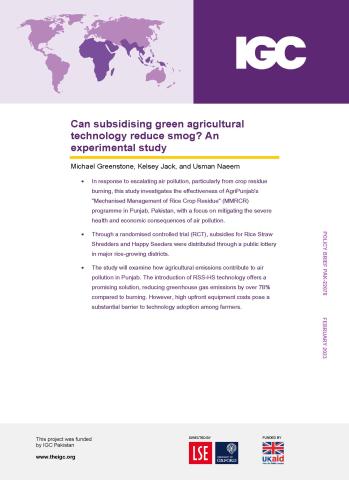Can subsidising green agricultural technology reduce smog? An experimental study
-
Naeem et al Policy brief February 2023
PDF document • 149.42 KB
- In response to escalating air pollution, particularly from crop residue burning, this study investigates the effectiveness of AgriPunjab's "Mechanised Management of Rice Crop Residue" (MMRCR) programme in Punjab, Pakistan, with a focus on mitigating the severe health and economic consequences of air pollution.
- Through a randomised controlled trial (RCT), subsidies for Rice Straw Shredders and Happy Seeders were distributed through a public lottery in major rice-growing districts.
- The study will examine how agricultural emissions contribute to air pollution in Punjab. The introduction of RSS-HS technology offers a promising solution, reducing greenhouse gas emissions by over 78% compared to burning. However, high upfront equipment costs pose a substantial barrier to technology adoption among farmers.





